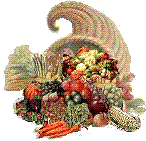
|
|
|
|
Stephen Roots steve@katroot.demon.co.uk 09/20/02 |
Urgently need some pointers to help me set up a course for the single and elderly both men and women - they find themselves in sheltered accommodation without the traditional means of cooking. Simple dishes would be advantageous please. Many thanks .. |
|
ellen ellenskitchen2017@gmail.com 09/21/02 |
Hi Stephen, This class is a really good idea. Microwaves are very helpful for folks who don't have access to regular cooking resources.
The biggest advantages are: Microwaves can be used to scald milk, or partially pre-cook potaoes for augratin rotatoes, to spead up the baking in the regular oven. Microwaves are't very good at pork or beef, but good for fish and chicken. Ground meat is OK, but cooks better in a flat donut shape than a regular patty- the very middle is never quite right.
The biggest risks are: If purchasing a microwave, selecting one with a turntable or carousel is very helpful and a 1000 watt oven is much more versatile than a lower watt one. This takes 8 minutes to boil a quart of water. Covering while heating is important for even, safe cooking and also keeps the microwave cleaner. Caution that eggs must ALWAYS be out of the shell and have the yolk pierced with a fork, or they blow up. Same for sausages, whole potatoes, or anything with a tight, whole skin. Beans and peas do pop and explode some, too, be sure they are covered. Introduce them to the idea of checking the watts/power on their machine, the new ones are up to 1100 watts and the oldest are 600. Using a 1000 watt oven, show them how to set the power range down to 600 watts and demonstrate how a single boneless, skinless chicken breast takes 5 minutes covered if medium size, 6 minutes if large. It is tender and juicy at 600 watts, dry and tough at 1000. To cook a cup of regular long grain white rice, you put the cup in a glass measuring container, add water to the 3 cup mark, cover with a plate (IE not tight). Cook 8 minutes at 1000 watts, full power, then 12 minutes at 600 watts. Vegetables in largish chunks take about 4 minutes per cup, covered. My two favorite recipe books for microwave recipe ideas are Barbara Kafka's Microwave cooking and Healthy Microwave Cooking. She is very popular and you can probably find these through the public library. |
|
Anita 09/27/02 |
Stephen, I have 25 tested microwave recipes on my site. You may want to check them out. If you have any questions regarding microwave cooking, you can e-mail me from my site below.
Anita's Tried & True Recipes |
|
Lesley driskell@ev1.net 11/22/02 |
I am setting up a safe and easy cooking class for senior citizens at a local food pantry and my focus will be on microwave cooking. I will go to your website for some recipes, but do you have any suggestions or ideas for my classes? Any input will be much appreciated. Thank you. Lesley |
|
Steve cyberlearn@aol.com 04/21/04 |
Does anyone know of a microwave oven that is designed for elderly people with a feature that won't allow it to run for more than, say, five minutes? We're taking out our mom's stove (fire department has had to be called twice recently) and want a microwave that she can't accidentally set for an hour or something like that and then burn everything up. Thanks to anyone for any info you can provide. Steve |
|
Christine c_marray@yahoo.com 05/25/04 |
Hi Ellen, I would like to know what is microwave cookery and the types and any additional information about microwave cookery. Thank you. Christine |
|
ellen 05/28/04 |
Hi, Christine, All cooking is adding energy to food to begin the process of cellular breakdown or digestion. All cooking causes some chemical changes, such as beginning to breakdown starches to sugars. These changes add flavor and change texture in ways people like. Microwave cooking is just cooking done in a special oven which uses energy in the microwave range. It was a side development of radar technology, which is why the very first ones were called Radar ranges. Because microwave energy is a little different from radiant heat such as in our regular ovens, you have to learn some new techniques. Also, just as some foods taste better roasted than boiled, some foods such as pork and beef don't taste as good to us microwaved- they get too tough! Since microwaves cook by being absorbed into the food and agitating the moisture or water moleculkes, you have to add more time for each additional item. So one potato may cook in 6 minutes, but 2 takes 10-11, and 4 takes up to half an hour! Microwave ovens are designed especially to keep the waves inside the oven. Just like you can get burned on a regular stove, microwaves may have some effect on YOU while they are working! There is a new kind of oven called "Advantium" that uses energy waves in the light wave range! I have not used one yet but hope I get a chance to. |
